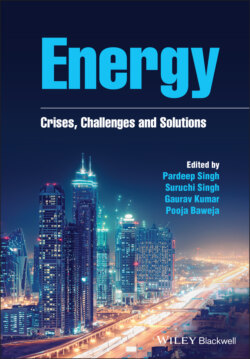Читать книгу Energy - Группа авторов - Страница 23
1.8 Mitigation Measures for the Energy Crisis and Global Warming: Reduce Emissions of Greenhouse Gases (IPCC)
ОглавлениеMajor measures to decrease GHG emissions from the oil industry and reduce the risk of a global energy crisis and eventual climate change should be a top priority for policymakers. The IPCC reports clearly describe the uninhibited effects of global warming. Sustained warming and far‐reaching adverse effects on all climate system components will result in the continued release of greenhouse gases, increasing the occurrence of extreme, imminent and irreversible impacts on the world’s population and ecosystems. Significant and sustained reductions in greenhouse gas emissions would be needed to tackle climate change, which, in combination with adaptation, would reduce the risks associated with climate change (IPCC 2018). Technology advancement in conjunction with reduced energy use, decarbonized energy supply, reduced emissions and improved carbon sinks in land‐based industries is needed. At the same time, the following steps will save energy for a long time and can help to slow down the warming:
They are developing ways to allow effective use of energy‐intensive materials and to improve methods of consumption.
Adoption of low‐carbon fuels, particularly in the case of modern refineries.
Developing new sources of energy (e.g. biomass, solar, wind and hydro‐electrical power).
In particular, the formulation of effective and strict environmental standards, rules, policies and regulations relating to the oil industry.
Mobilizing and encouraging environmental and emission control activities to cope effectively with the emerging oil industry.
Construction of offshore wind turbines and other related marine‐based renewable energy technologies to further transition away from fossil fuel dependency.
Restoration of coastal habitats containing mangroves and salt marshes that are used to store carbon and have multiple benefits, such as providing buffers against extreme tropical storms, filtering contaminants and providing an ideal habitat for fish and other types of wildlife.
These essential and powerful steps are capable of reducing significantly 21% of pollution by 2050. They will minimize warming to 1.5 °C or just above pre‐industrial levels by the end of the current century.
